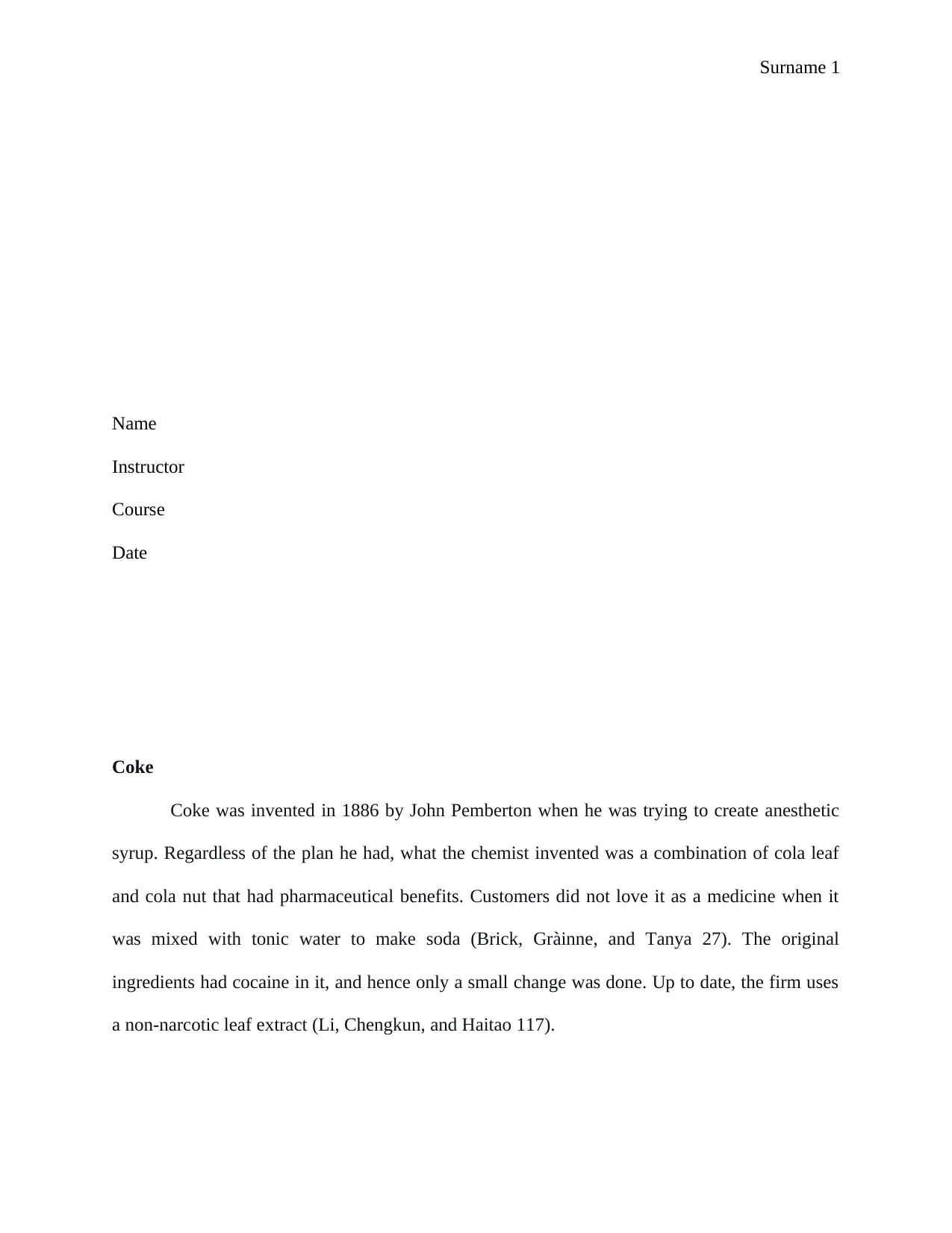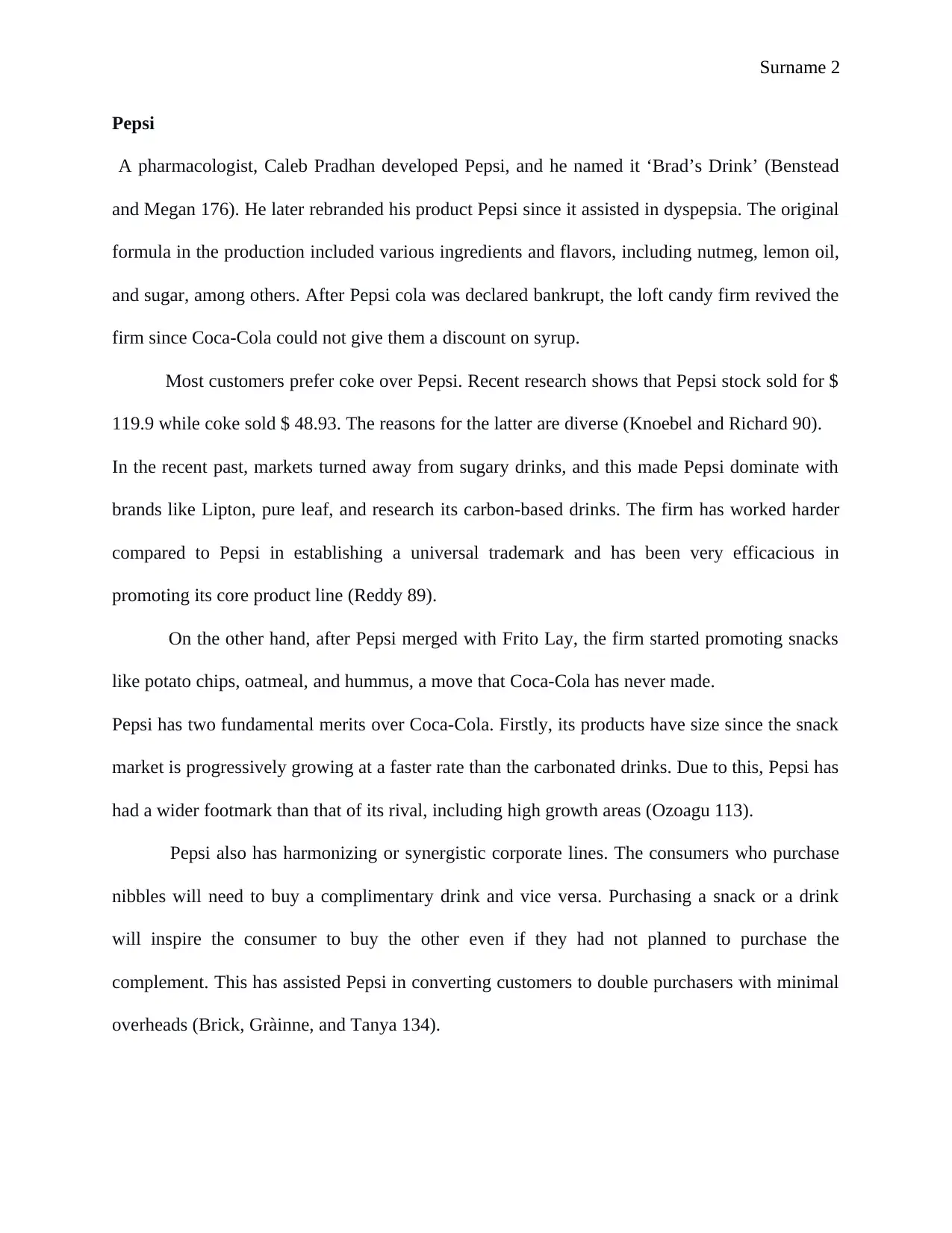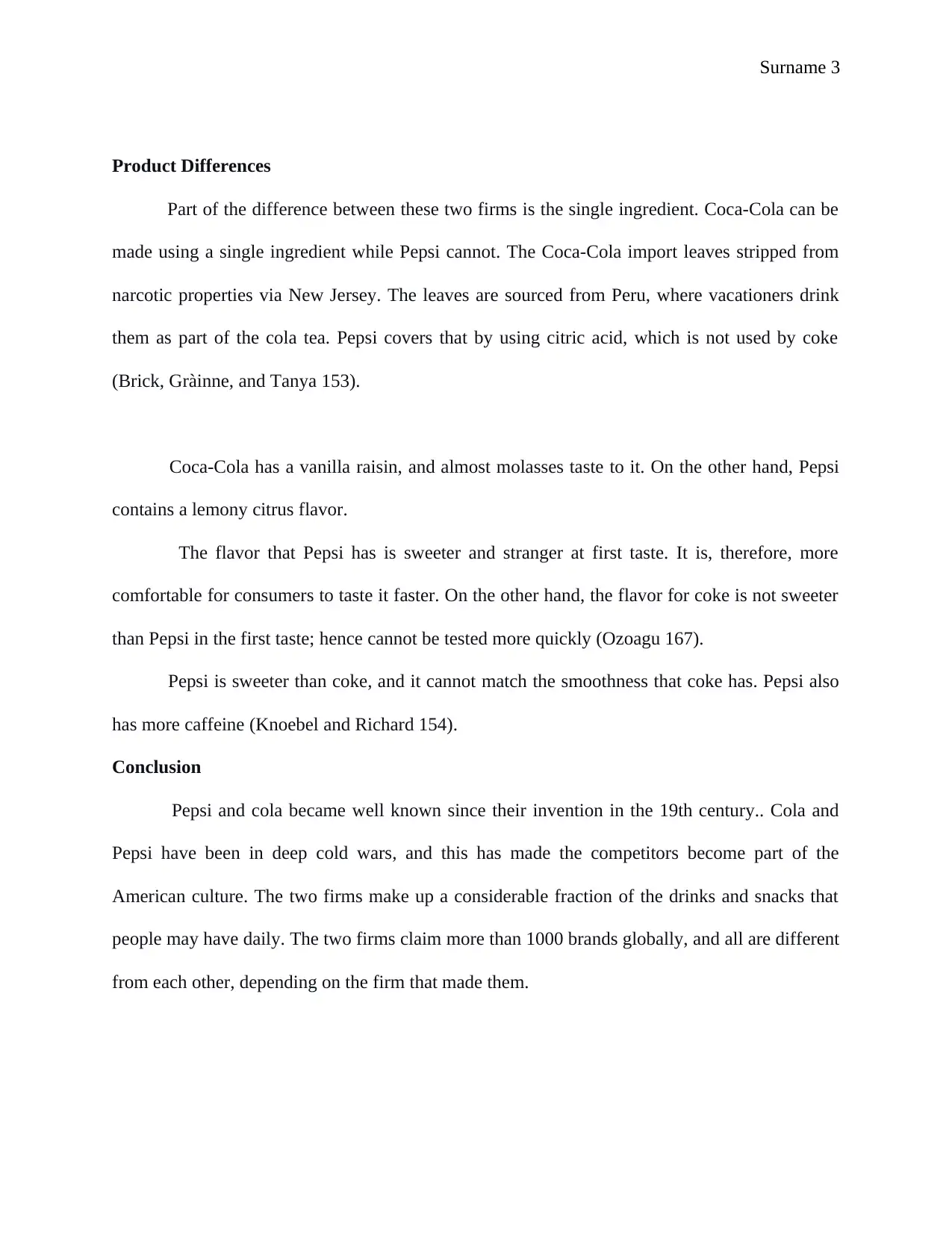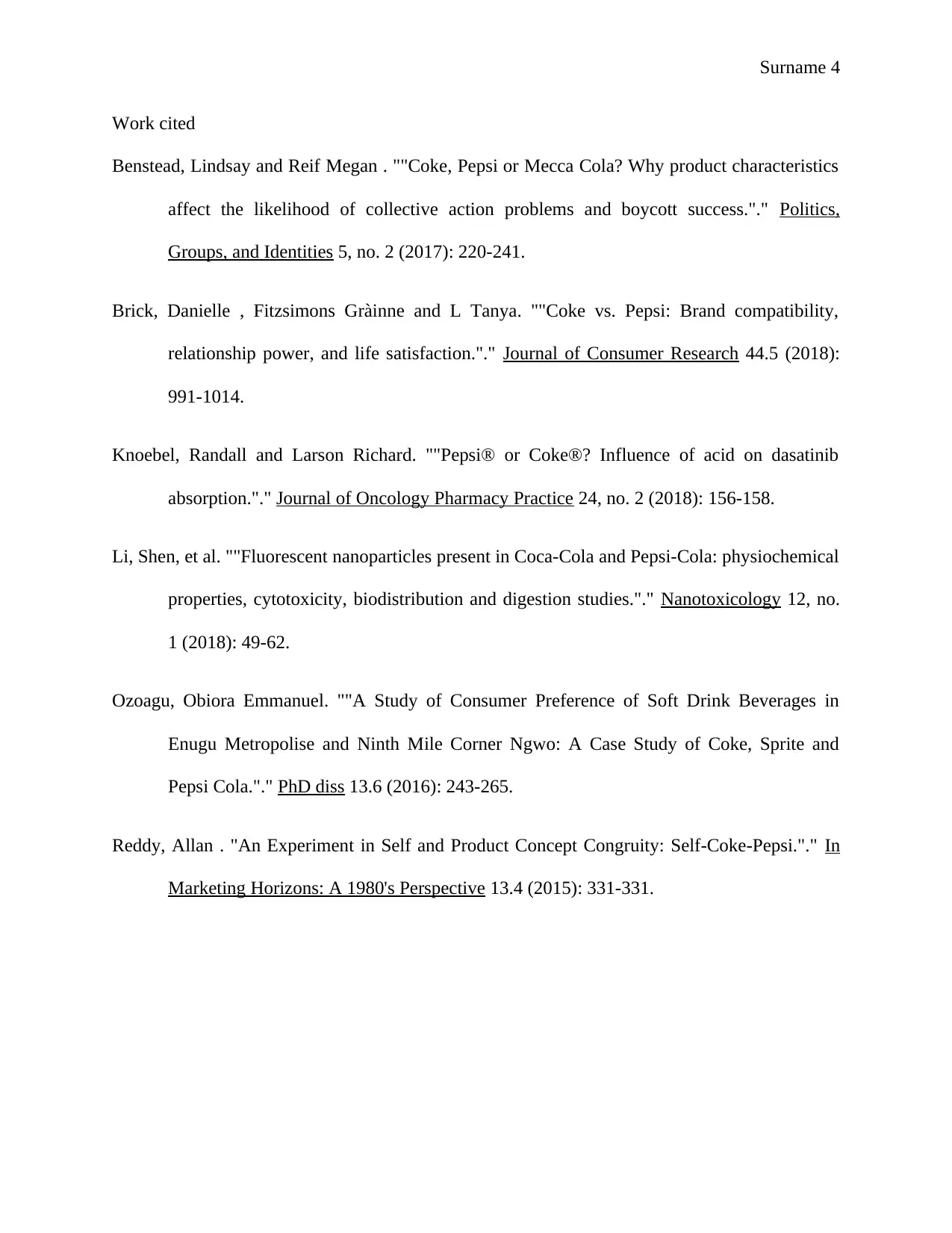Marketing Strategies and Product Differences: Coke Versus Pepsi
VerifiedAdded on 2022/09/25
|4
|987
|43
Essay
AI Summary
This essay provides a comparative analysis of Coca-Cola and Pepsi, two of the most recognizable brands in the beverage industry. It begins by tracing the origins of both companies, highlighting their initial product formulations and early marketing efforts. The essay then delves into the key product differences, including ingredients, taste profiles, and caffeine content. It further examines the contrasting marketing strategies employed by each company, such as branding, advertising campaigns, and product diversification. The analysis includes an overview of how both companies have adapted to changing market trends and consumer preferences, including the shift towards healthier beverage options. The essay also discusses the financial performance of both companies, comparing their stock values and market shares. Finally, the conclusion synthesizes the key findings, offering insights into the enduring rivalry between Coke and Pepsi and their continued influence on the global beverage market. The work cited section provides a list of sources used to support the essay's claims.
1 out of 4











![[object Object]](/_next/static/media/star-bottom.7253800d.svg)